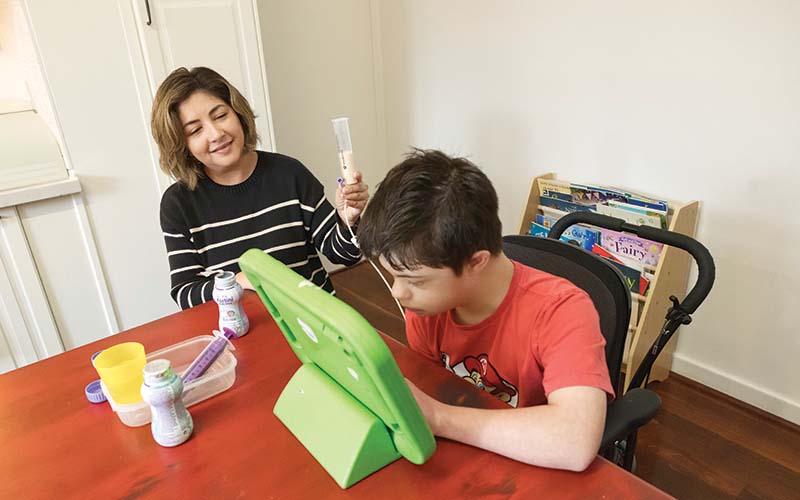Search
Research
Harnessing neuroplasticity to improve motor performance in infants with cerebral palsy: A study protocol for the GAME randomised controlled trialCerebral palsy (CP) is the most common physical disability of childhood worldwide. Historically the diagnosis was made between 12 and 24 months, meaning data about effective early interventions to improve motor outcomes are scant. In high-income countries, two in three children will walk. This evaluator-blinded randomised controlled trial will investigate the efficacy of an early and sustained Goals-Activity-Motor Enrichment approach to improve motor and cognitive skills in infants with suspected or confirmed CP.

For thousands of children around Australia with intellectual and other disabilities, the process of eating can be traumatic, posing challenges that veer from uncomfortable to life threatening.

News & Events
Driving change for children with disabilityToday marks International Day of People with Disability (IDPwD), a United Nations initiative that encourages communities around the world to deepen their awareness, understanding and acceptance of people with disability.

News & Events
Pioneering new treatments for leukaemia in children with Down syndromeA team of world-leading scientists has secured $5 million in funding from the Leukaemia and Lymphoma Society to advance the fight against leukaemia in children with Down syndrome.

News & Events
The Kids researchers finalists in Premier’s Science AwardsThree outstanding The Kids Research Institute Australia researchers have been named finalists in the 2016 Premier's Science Awards
Research
Pain coping tools for children and young adults with a neurodevelopmental disability: A systematic review of measurement propertiesTo systematically identify and evaluate the measurement properties of patient-reported outcome measures (PROMs) and observer-reported outcome measures (parent proxy report) of pain coping tools that have been used with children and young adults (aged 0–24 years) with a neurodevelopmental disability.
Research
Modifiable child and caregiver factors that influence community participation among children with Down syndromeTo investigate modifiable child and caregiver factors influencing community participation among children with Down syndrome.
Research
A brief history of MECP2 duplication syndrome: 20-years of clinical understandingMECP2 duplication syndrome (MDS) is a rare, X-linked, neurodevelopmental disorder caused by a duplication of the methyl-CpG-binding protein 2 (MECP2) gene-a gene in which loss-of-function mutations lead to Rett syndrome (RTT). MDS has an estimated live birth prevalence in males of 1/150,000.
Research
CDKL5 deficiency disorder: clinical features, diagnosis, and managementCDKL5 deficiency disorder (CDD) was first identified as a cause of human disease in 2004. Although initially considered a variant of Rett syndrome, CDD is now recognised as an independent disorder and classified as a developmental epileptic encephalopathy.
Research
"Capturing the magic": identifying the active ingredients of a physical activity participation intervention for children and youth with disabilitiesThis study aimed to define the active ingredients of a participation-focused physical activity intervention for children and youth with disabilities.
